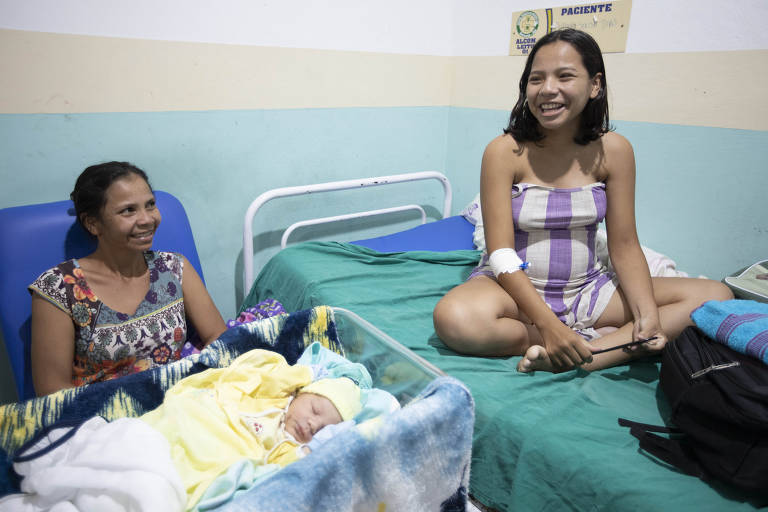With one of the highest rates of early pregnancy in Amazonas, the city of Autazes, in the interior of the state, sees many girls in the municipality of 41,000 inhabitants not even reaching 20 years old before becoming mothers.
Located 111 km from Manaus, the city requires a 12-hour boat journey or a series of river crossings by ferry or speedboat and a car journey. There, it's easy to see girls becoming mothers before the age of 15.
A pregnancy at this age is considered early by the World Health Organization. The institution considers pregnancies from 10 to 19 years old as adolescent pregnancies. In Brazil, any pregnancy before the age of 14 is considered a risk to the mother's life and, therefore, falls within the conditions for legal abortion.
Even with this legal framework, in 2023, preliminary data from the municipality indicate 21 pregnancies in girls up to 14 years old.
Bruna Nóbrega, 14, mother of Arthur, 5 months old, is part of this statistic. "My mother made it very clear to me that if I got pregnant, I would have to keep it," says Bruna. And she did. Now, the girl and the baby share a room in a wooden house in a neighborhood dominated by drug trafficking.
Nurse Kelly Bessa, coordinator of the women's health program in Autazes, says logistics are a challenge. Much of the municipality is divided into rural areas and indigenous land of the Mura people, which seeks demarcation. For healthcare professionals, this means journeys of up to 12 hours by boat or hours by speedboat. During the dry season, part of the journey is made on foot.
The perception that sexual health is only related to contraception is also a barrier to broader measures, says Grace Rosa, coordinator of comprehensive care management at the Ministry of Health.
